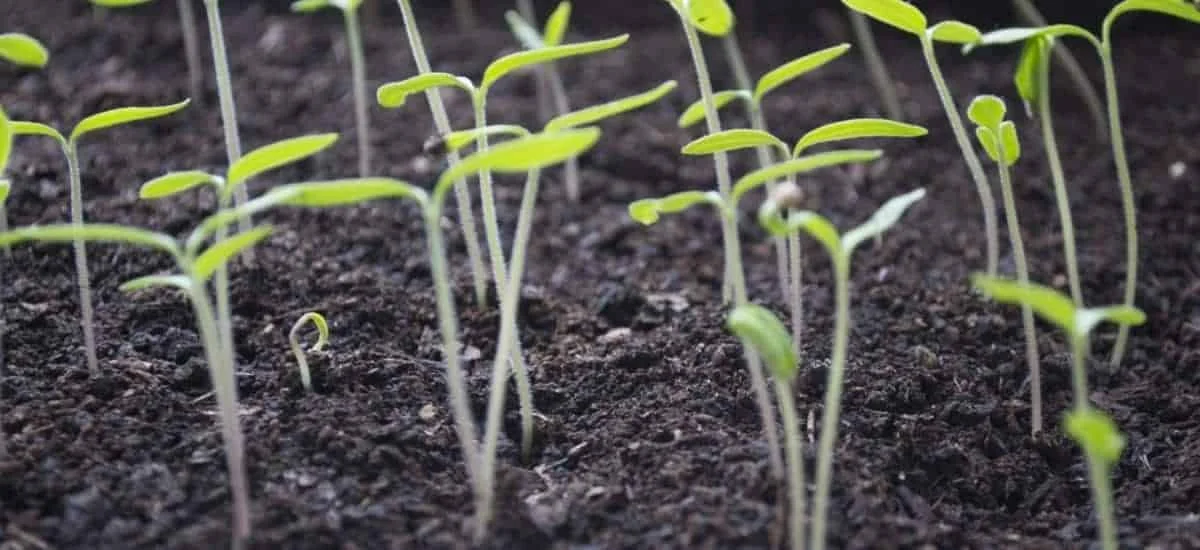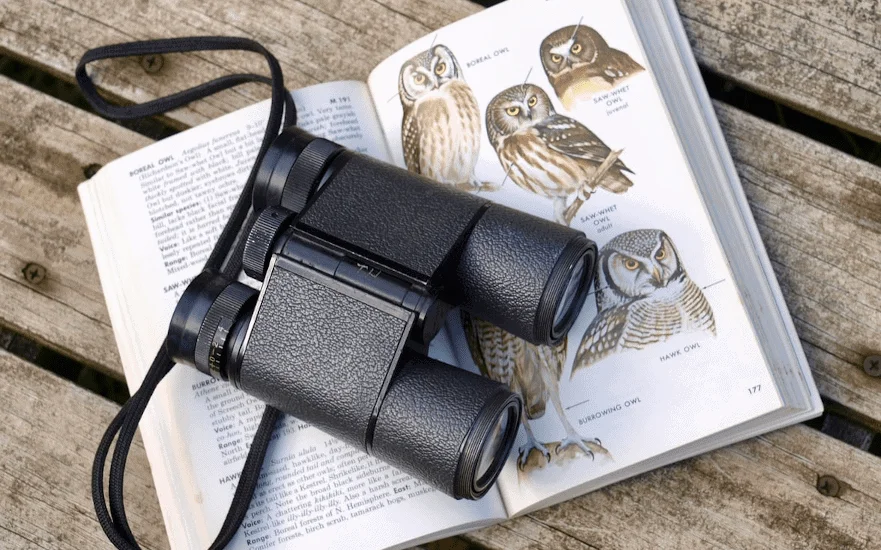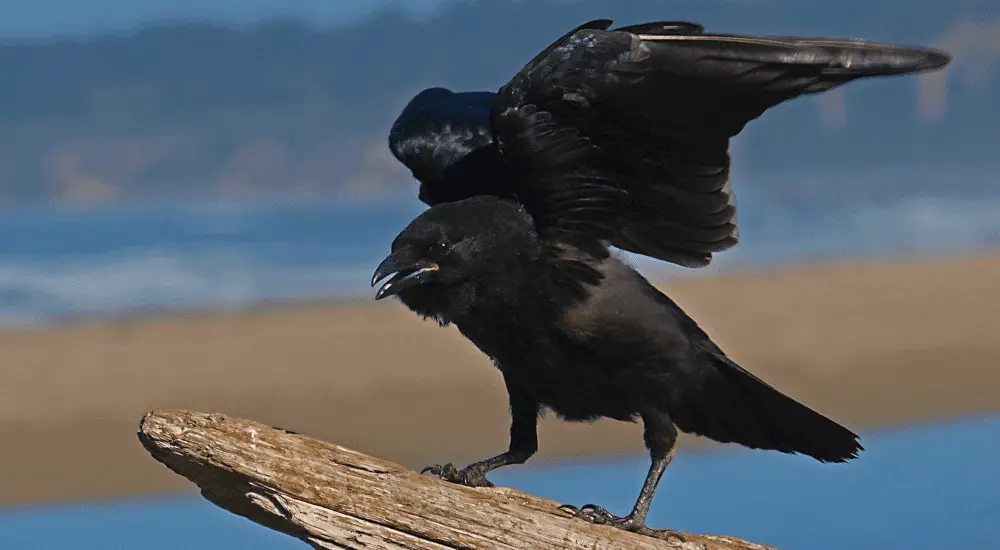
Keeping birds away from your newly planted seed can be hard and frustrating. We advise that you offer them alternative food sources, cover the seeds with straw, rake your seeds into the soil and add decorations around you garden to scare away the birds. This article will cover all of these tips and more.
You have just planted new grass seed in the hopes of renewing your lawn and the result is that the birds have found a new source of food. It can be pretty frustrating to see your investment get eaten, but when you know how to keep birds from eating seeds in your yard, it becomes an issue you can deal with fairly easily.
What follows are a few simple tips that will protect the grass seed and allow your lawn to flourish without having it destroyed by the birds.
1. Bird Feed
One of the simplest methods of keeping birds from eating your seeds is to offer them an alternative food source. They eat your seeds for food and therefore having multiple feeders with the right type of feed in them will ensure that they don’t go hungry. If you are interested on reading more about different birds feeders or different types of feed then please follow these links.
It’s important to note that people experience different results with regards to the placement of the feeders. When bird numbers are low, placing the feeder close to the grass seeds can work well as the birds bellies will be satisfied. However, if the feeders are attracting a large amount of birds to your grass seeds it may be advised to place the feeder further away. Try it out and see what works best for your yard!
This free standing bird feeder has plenty of locations to place a wide variety of seeds. It also includes a suet feeder which is a tasty treat for birds and will best distraction for birds eating your grass seeds. This stander Wagners Bird Seed is a generic blend of seeds that attract a wide range of birds.
We do warn however, this tip does need to enforced along with others in this article. Alternative food sources alone does not ensure birds keeping away from your seeds.
2. Raking
Once you have spread the seeds on the ground, use a rake to try and move the seeds about an inch or two under the soil. It takes a little work, but you are essentially planting the seeds just enough under the earth for them to be protected. Remember that the seeds do not need sunlight at first, they need soil so they can germinate. A little raking may be enough to keep the birds from finding the seeds.
3. Decoys
A simple yet effective way of keeping birds off your seeds is to use fake animals as a deterrent. Birds are terrified of snakes and most are scared of Owls. Use fake rubber snakes or Owl Decoy such as this one around the yard to keep unwanted birds away. The head of this owl decoy even moves!
A creative solution is to place sticks vertically into the ground around the gardens and tie old CD’s to the stick. By reflecting light and making a slight noise these CD’s will scare away most birds.
Knowing how to keep birds from eating seeds in your yard means having a lawn full of grass and not bird droppings on the dirt. Remember that you may need to employ more than one method for it to work fully, but it can be done with a little patience.
4. Straw
This is one of the oldest, most effective methods for keeping birds away from the seeds. Spread a layer of straw on top of the seeds after you have placed them on your lawn. The straw will keep the birds from finding the seeds and allow them to germinate and take hold. Once they reach the point of germination, remove the straw by using a rake or picking it up by hand.
5. Nets
Following on from Tip 3, another option is a polyurethane net. Maybe not as aesthetically pleasing as Straw but polyurethane nets offer a guaranteed way of keeping birds away from your grass seeds. Tightly secure the net around you grass seeds to ensure birds can’t enter.
The nets come in a variety of sizes and should be large enough to cover your grass seeds. The mesh is small and should stop tiny birds from entering.
Ensure that the net is elevated in the middle of your grass seeds so that the seeds have enough space to grow and to stop smaller birds from being able to pick out seeds through the fine mesh.
6. Spinning Wheels
Pinwheels are a common lawn decoration, but their original purpose was to keep pests away such as birds. You’ll want to use pinwheels that make a little noise when they move and have a shiny surface to reflect sunlight. You can plant several of them around the lawn to ensure full coverage.
You may opt for a metal, solar powered pinwheel that is both durable and beautiful. An alternative is to use cheaper plastic wheels that can work just as well if they are in a sheltered area. High winds can damage and bend plastic wheels quite easily.
Another option is to try some DIY! Anything moving and shiny should work just as well a spinning wheel.
7. Shiny Tape
This is another simple method that works pretty well, although it will take more effort to employ. Plant three-foot poles on your lawn about six to seven feet apart. Tie some shiny tapes to each pole, but not too tightly as you want it to move in the breeze. Mylar tape will make noise and reflect flashes of sunlight which frightens birds and may keep them away from the seeds.
8. Sheets of Burlap
You may have seen this method used on other lawns and it can be quite effective. Burlap is mostly solid, but it does allow sunlight, moisture, and heat to get to the seeds. If you live in a place that is windy, then this may be the best answer. Just lay the sheets of burlap across the soil after you have placed the seeds, then anchor it down so the sheets do not blow away. Burlap sheets are fairly inexpensive, so unless you are covering a very large area this should fit into your budget
What smells can keep birds away from grass seeds?
There are many smells that can repel birds away from your grass seeds. Garlic, Cayenne Pepper and Peppermint Oil are all known to be offensive to birds and all happen to be organic products. Follow this article to learn more about what smells keep birds away.

More Articles.

Best Camera For Bird Watching 2020
Article Summary: Best Budget Camera: Nikon D500 DX-Format Digital SLR Best Mid-tier Camera: Canon EOS

Best Binoculars for Bird Watching 2020
Article Summary: Best Budget Binoculars: Nikon 8250 Aculon 16×50 Best Mid-tier Binoculars: Nikon Monarch 5

How to keep blackbirds away from your bird feeder?
Want to keep blackbirds away from your backyard? Are blackbirds feeding on your bird feeder?

About Us
We are avid bird-watchers who recently retired, allowing us more time to travel the world. Fortunately, we have managed to visit numerous countries around Europe, Asia, and America. Watching and photographing birds has been a passion for many years and we are making the most of the extra time on our hands!







